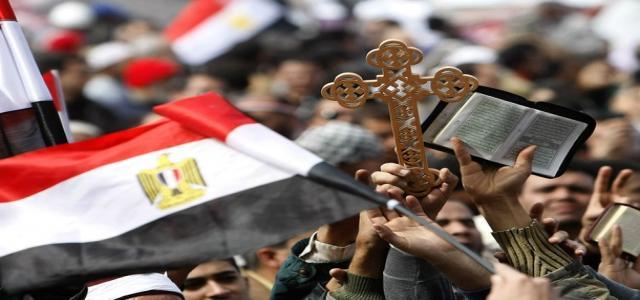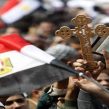
The Internal Crisis of the Muslim Brotherhood in Egypt
Publication: Terrorism Monitor Volume: 9 Issue: 16
By:

Since the beginning of the Egyptian Revolution on January 25, the Muslim Brotherhood in Egypt has tried to project an image of unity in its forces, actions and demands. The Brotherhood has been in the forefront of those who insisted on putting the former President Hosni Mubarak and the remnants of his regime on trial. This show of unity was maintained until the April 8 “Friday of Purgation and Trial” and the mock trial of three of Mubarak’s closest political allies held in Cairo’s Tahrir Square. The protest was boycotted by the Salafis and the Islamic Group (Islam Today, April 8).
In spite of this external show of unity within the Muslim Brotherhood since the abdication of President Mubarak and the transfer of power to the Supreme Council of the Armed Forces, the internal, operational and theoretical crises began to invade this show of unity. The image of the Brotherhood has changed from that of the victim to that of a dominant but untrustworthy actor as seen by the youth of the revolution, who worry that the movement might at any moment alienate itself from the Revolution, similar to what happened when the Muslim Brothers and the Salafists allied themselves with the army in seeking a yes vote in the March 19 constitutional reform referendum. The successful yes vote will fast-track parliamentary and presidential elections, a move that will favor the established religious groups like the Brotherhood. There are also concerns in the movement’s youth wing over reports that members of the Muslim Brothers’ 16-man Guidance Council held secret meetings in February with former Vice President Omar Sulayman to negotiate an end to their participation in the revolution in exchange for permission to found their own political party (Muslim Brothers must currently run as independents in elections) (al-Masry al-Youm, April 17). Incidents such as these as well as rumors that the movement is conducting secret talks with the Supreme Council of the Armed Forces have accelerated the process of alienation from the Revolution and the movement’s youth wing.
On March 31, Haytham Abu Khalil, a former member of the Brotherhood’s Shura (consultative) Council, resigned because of the arbitrary way in which the movement treated him after he was suspended for one month after establishing contacts with the media and his criticism of the leadership. The punishment was later extended to three months and then to a full year. This pushed Abu Khalil to tender his resignation and announce his allegiance to the rival Islamist Nahda (Renaissance) Party (Youm7.com, March 31).
Further losses to the Brotherhood’s leadership occurred on April 2, when Dr. Abdul Moneim Abu al-Futooh, one of the most prominent reformists within the Muslim Brothers, and Dr. Ibrahim al-Zaafarani, a Shura Council member, submitted their resignations. There is speculation they may join Nahda or the Wasat Party, a Muslim Brotherhood breakaway party formed in the mid-1990s. This has all happened after the Brotherhood’s Supreme Guide Muhammad Badie declared members of the groups would not be allowed to join any political party other than the movement’s new Freedom and Justice Party. Al-Zaafarani also noted that the Muslim Brothers’ leadership warned some of its leaders against attending a March 26 conference organized by the movement’s youth faction.
It is also worth noting that a year ago al-Zaafarani had strongly criticized and questioned the legitimacy of the movement’s elections and its organizational structure, serious issues that were shoved aside by the new Brotherhood leadership. Al-Zaafarani also stated that the Muslim Brotherhood lacks internal accountability and should realize the approaches used before January 25 are no longer feasible (al-Akhbar, March 30; al-Masry al-Youm, April 2). These criticisms have left the leadership unmoved; member Jamal Madhi declared on the movement’s website that: “The Muslim Brotherhood is like a train that moves in one direction and it will not stop its movement because one of its passengers wants to leave the train” (Ikhwan Online, April 5). In spite of the fact that these resignations took place among the middle ranks of the movement, it is quite obvious by now that the generational conflict runs even deeper than the middle ranks. The Muslim Brotherhood’s youth faction has been active since the revolution in examining the movement’s leadership and administrative structure, calling for serious reforms of the movement’s political perspective and organization. They also demand new ideologies that will lead the movement to more open perspectives and greater harmony with post-Mubarak Egypt.
The youth have called for dissolving the organizational structure of the group and the formation of a transitional administrative council until new and free elections can be held. They have also proposed more open and moderate ideas, saying for example that they did do not object electing a Copt as Egypt’s president. Such ideas are not shared by other elements of the movement – members of the Brotherhood blocked rail traffic outside the southern city of Qena for two days to protest the appointment of a Coptic governor, General Emad Shehata Michael (Ahram Online, April 16; AP, April 17).
This puts the Muslim Brothers between the rock of the demands of its youth and the hard place of the escalating Salafist challenge. The movement’s attempt to contain its youth who participated in the January 25 revolution will be risky as it simultaneously attempts to deal with the challenges posed by the more fundamentalist and extremist ideologies of the Salafists and jihadis.
There are many other problems and challenges that stand in the way of the Muslim Brothers in post-revolutionary Egypt. These challenges take form in the movement’s inability to renew its identity by keeping itself captive to the era of its founder, Hassan al-Banna (1906-1949). In addition, there is a negative perception of the movement by some prominent Islamists and social leaders who believe Egypt’s largest Islamic group has deviated from the real teachings of Islam to concentrate its efforts on political pursuits.
The civil movements which were fascinated by the Muslim Brothers’ proposal on civil reconciliation after the revolution still have concerns. Their trust in the Brotherhood is far from solid, especially after the battle for constitutional reform on March 19, leading some individuals to talk about a secret deal between the Brothers and the Supreme Council of the Armed Forces. Such a deal has been denied by the latter through statements by its official spokesman.
The question, then, is whether the current crisis within the movement will pave the way for the type of internal dialogue that has been silenced within the corridors of the movement until now. Egypt’s new political environment is encouraging competition to the Brotherhood even within the Islamist sphere. Egypt’s Islamists will be watching to see whether the movement realizes that its current ideology and strategies no longer enable it to face a host of new challenges and that change has become inevitable.





